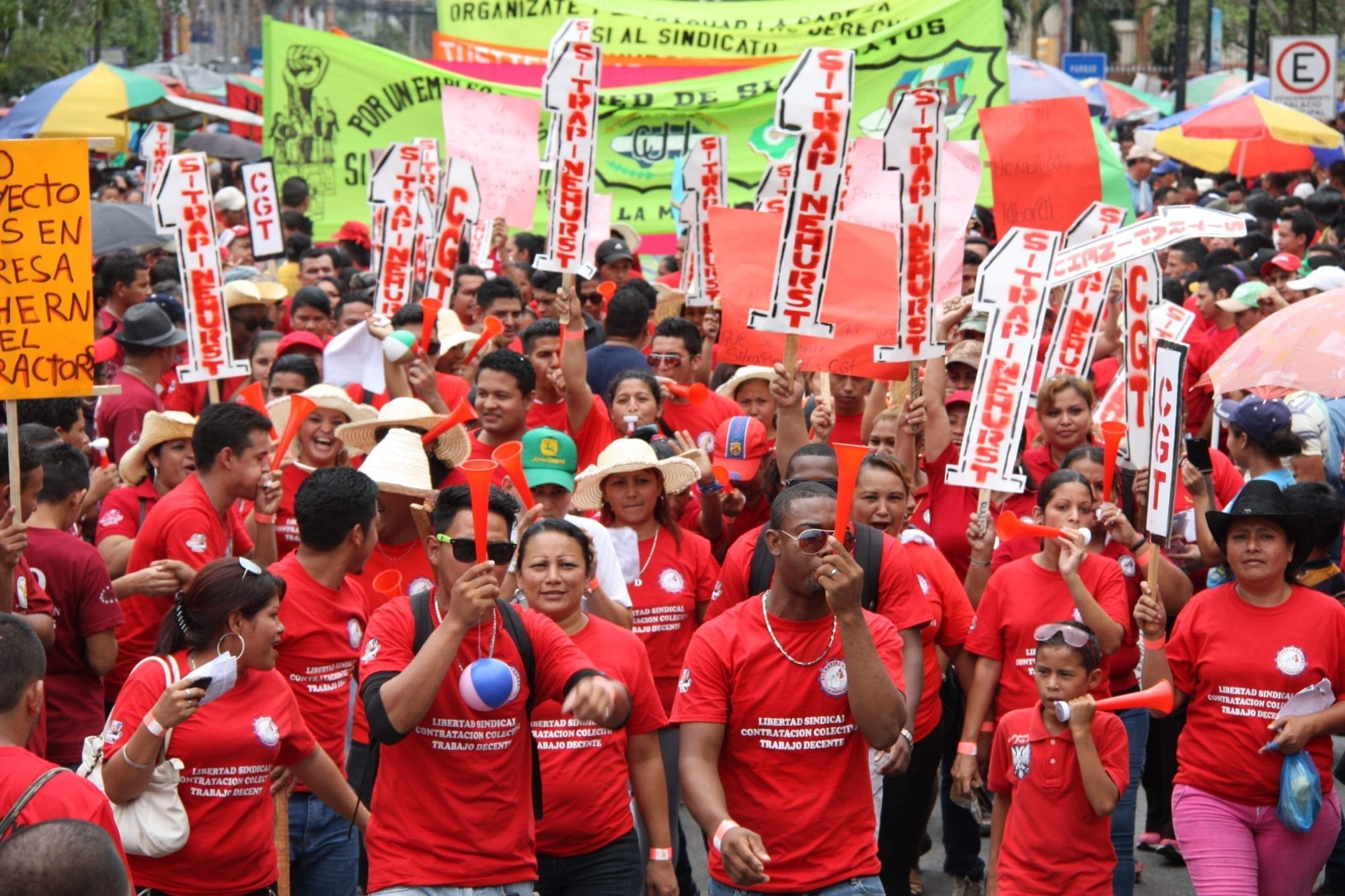
Jun 29, 2017
Workers around the world experienced rising physical violence and threats over the last year—and in more countries–according to this year’s ITUC Global Rights Index. The report documents attacks on union members in 59 countries and shows that 60 percent of countries are now excluding entire groups of workers from labor law.
“We need to look no further than these shocking figures to understand why economic inequality is the highest in modern history. Working people are being denied the basic rights through which they can organize and collectively bargain for a fair share,” said Sharan Burrow, International Trade Union Confederation general secretary.
The report’s key findings include:
- Millions of people are still enslaved under the kefala system in the Gulf, making the Middle East and North Africa once again the worst region for treatment of workers
- Unionists were murdered in 11 countries: Bangladesh, Brazil, Colombia, Guatemala, Honduras, Italy, Mauritania, Mexico, Peru, the Philippines and Venezuela
- The number of countries in which workers are exposed to physical violence and threats increased from 52 to 59 countries, including Colombia, Egypt, Guatemala, Indonesia and Ukraine
- Eighty-four countries exclude entire categories of workers from labor law
- More than three-quarters of countries deny some or all workers their right to strike
- More than three-quarters of countries deny some or all workers collective bargaining
- Out of 139 countries surveyed, 50 deny or restrict free speech and freedom of assembly.
The report ranks the 10 worst countries for worker rights in 2017 as Bangladesh, Colombia, Egypt, Guatemala, Kazakhstan, the Philippines, Qatar, South Korea, Turkey and the United Arab Emirates.
Read the report: ITUC Global Rights Index 2017
Download the ITUC Global Rights Index map
Download the ITUC Global Rights Index Infographic – Violation of workers’ rights
Download the ITUC Global Rights Index Infographic – Ten worst countries in the world for working people
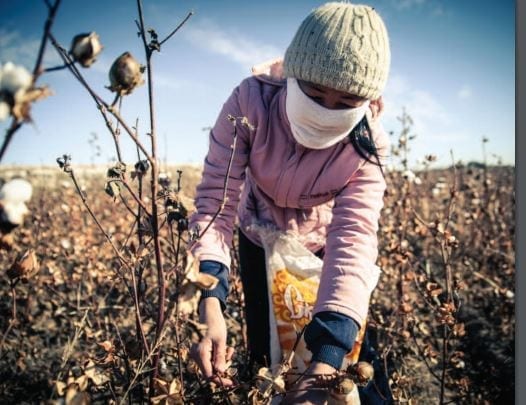
Jun 28, 2017
The World Bank is funding half a billion dollars in agricultural projects linked to forced and child labor in Uzbekistan, said Human Rights Watch (HRW) and the Uzbek-German Forum for Human Rights (UGF) in a report released today.
Even though the Uzbek government promised the Bank that it would not use forced or child labor linked to the projects or within project areas, and the Bank promised to independently monitor for abuses and create a way for victims to seek redress, in 2015 and 2016 forced labor continued. Under the loan agreements, the Uzbek government is required to comply with laws prohibiting forced and child labor, and the World Bank can suspend the loans if there is credible evidence of violations.
“The World Bank is giving Uzbekistan cover for an abusive labor system in its cotton industry,” said Umida Niyazova, director of the Uzbek-German Forum for Human Rights.
“‘We Can’t Refuse to Pick Cotton’: Forced and Child Labor Linked to World Bank Group Investments in Uzbekistan” details how the Uzbek government forced students, teachers, medical workers, other government employees, private-sector employees, and sometimes children to harvest cotton in 2015 and 2016, as well as to weed the fields and plant cotton in the spring of 2016. An estimated 1 million doctors, teachers, nurses and others are forced by the state to harvest cotton each year in the fall.
The report—based on hundreds of interviews and conversations with victims of forced and child labor, farmers, and key actors in the forced labor system, leaked government documents, and statements by government officials—shows that citizens continued to work in the cotton fields because of government threats of violence, firing, stopping welfare payments and the suspension or expulsion of students.
District Mayor Uktam Kurbanov reportedly said to one picker at a cotton meeting in Khazarasp, Khorezm region on September 29, 2015: “What’s this? You delivered only 1,286 kilograms? Why is that? I’ll tear your head off!”
Said a school director in the Fergana region on September 29, 2016: “I won’t call the complaint line number we were given. There is no use… All these calls [to the hotlines] will result in simple teachers and medical workers losing their jobs.”
Uzbekistan is the fifth largest cotton producer in the world. The country’s cotton industry generates more than $1 billion in annual revenue, or about a quarter of the country’s gross domestic product (GDP).
The UGF and HRW are members of the Cotton Campaign, as is the Solidarity Center. The campaign works to end the injustice of forced labor in cotton harvesting in Uzbekistan and Turkmenistan.
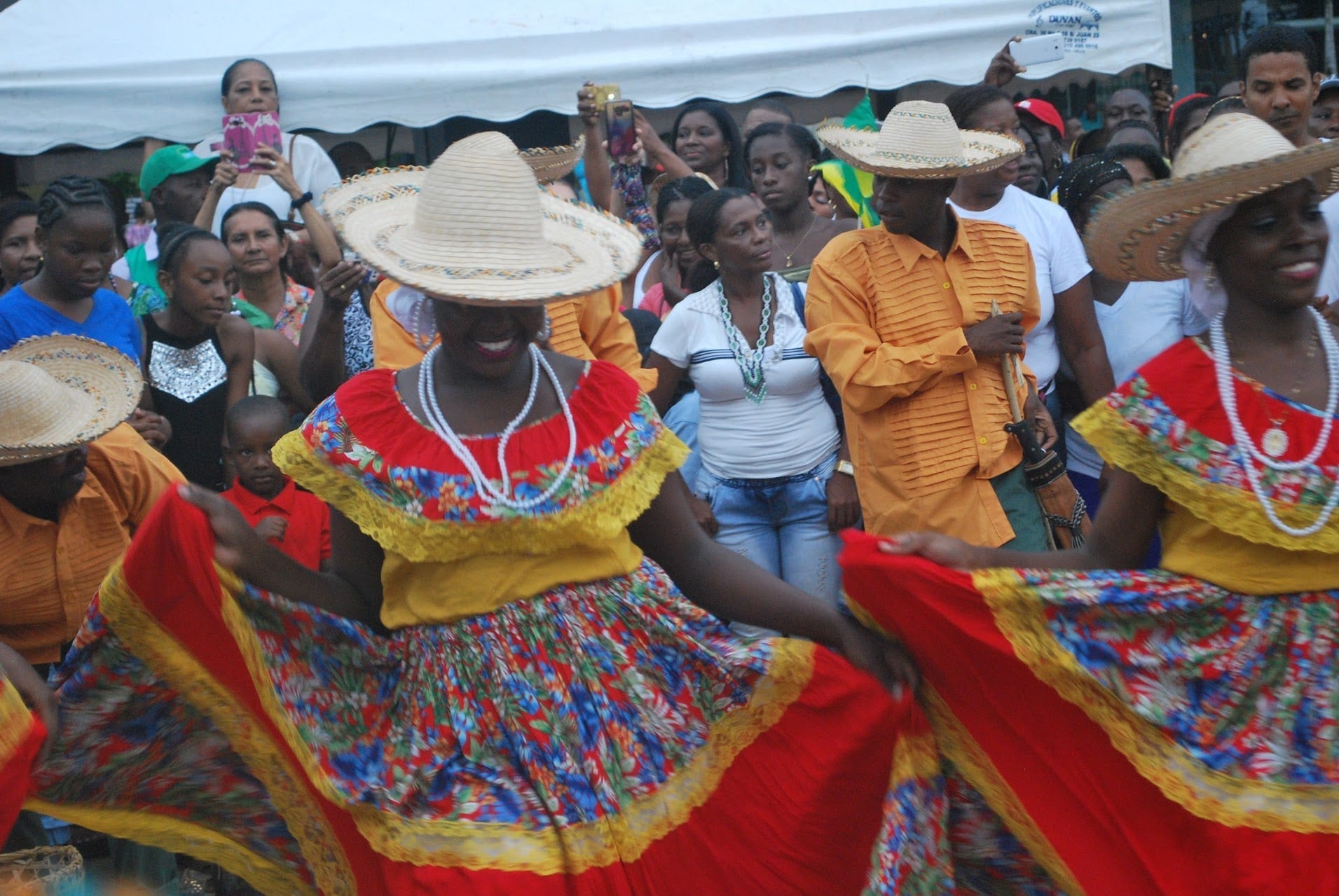
Jun 24, 2017
After 22 days of peaceful protests, workers, unions and other civil society groups in Buenaventura, the country’s largest port city, won a landmark agreement with the Colombian government. On June 6, the government agreed to invest more than $500 million in the long-neglected city over the next decade. United Nations officials, senators and local politicians witnessed the signing of the agreement. A bill securing the funding is scheduled to be submitted to Congress on July 20.
Following the agreement, the elected strike committee, representing a coalition of 66 civil society organizations in Buenaventura, suspended the civic strike for one month to assess the government’s compliance with its pledge. In the lead up to the July 20 deadline, local groups will continue to negotiate decent employment and improved water services, sanitation, healthcare, education, housing and other social initiatives.
On May 16, tens of thousands of peaceful protesters took to the streets demanding peace and dignity after years of neglect by leaders in Bogota, the capital. Many of the port city’s 400,000 predominately Afro-Colombian inhabitants live in abject poverty without access to proper hospitals, schools, roads and other basic services.
Buenaventura’s thriving port accounts for 60 percent of the country’s maritime trade and in 2014, generated $2 billion in tax revenue. Only 3 percent of that revenue is reinvested in the city.
Many residents work in the port without the protection of Colombia’s labor code. The Port Workers’ Union (Unión Portuaria) is pushing to incorporate them into a collective bargaining agreement that would establish direct, indefinite employment contracts that include a living wage and provisions for health and pension benefits.
Beginning on the fourth day of demonstrations, the peaceful protests were disrupted by a national police force crackdown, with 41 reported arrests, dozens injured and at least one death. Human rights groups condemned the government’s decision to deploy riot police against peaceful demonstrations—in a city deprived even of a local, publicly-funded security service.
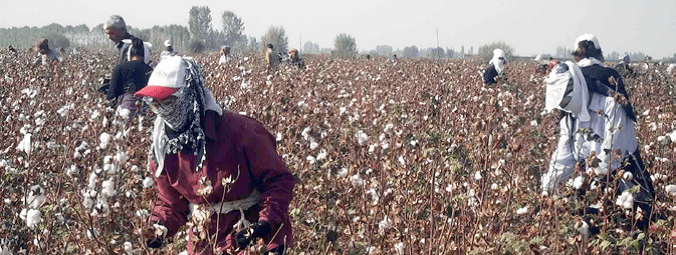
Jun 23, 2017
A prominent Uzbek worker rights activist, falsely accused and jailed in 2014, died almost six months ago in prison—with news of his death only reaching the public this week.
Nuraddin Jumaniyozov, who was serving a nine-year term following a conviction for “human trafficking,” died December 31, 2016, according to the Uzbek-German Forum. Prison authorities claim Jumaniyozov died of tuberculosis.
“Mr. Jumaniyozov’s death in prison, away from his family and loved ones, is a tragedy. It shows the lengths the government of Uzbekistan will go to prevent anyone from building a truly independent union representing any group of workers, especially those who are most oppressed,” said Rudy Porter, director of Solidarity Center programs in Europe and Central Asia.
Uzbekistan has made a practice of violence, torture and politically motivated imprisonment to deal with dissent and civil-society activism. It also is the largest state organizer of forced labor in the world, as it drives public-sector workers into the cotton fields each fall to harvest.
Jumaniyozov’s arrest and subsequent trial, alongside fellow worker rights activist Fahriddin Tillayev, was widely condemned as an orchestrated move to silence the labor movement. Prior to their incarceration, the two had been active in organizing day laborers and migrant workers, who have fled unemployment in rural areas for Tashkent, the capital, and other large cities.
Under Uzbek law, day laborers and migrant workers lack many of the legal protections afforded to other workers, leaving them vulnerable to exploitation and unsafe employment. To solve this injustice, Jumaniyozov and Tillayev were working to establish an independent trade union for day laborers before they were arrested in January 2014.
Before their imprisonment, Jumaniyozov and Tillayev were targeted for their activism. In 2012 and 2013, they were detained and fined on multiple occasions, as their organizing work was gaining ground. Tillayev remains in custody, serving a 10-year sentence. The Cotton Campaign, of which the Solidarity Center is a member, is condemning Jumaniyozov’s unnecessary death and demanding the release of Tillayev.
Freedom of association is severely curtailed Uzbekistan, though the government last year ratified the International Labor Organization’s Convention No. 87, which recognizes freedoms of association and the protection of the right to organize. All Uzbek trade unions are organized under the state-controlled Council of the Federation of Trade Unions. Workers attempting to establish unions independent of the federation—or to educate others on their right to do so—have experienced brutal reprisals.
Forced labor activist Elena Urlaeva was detained in a psychiatric hospital by government officials as recently as March this year, and previously had been arrested, beaten and imprisoned. Human rights activist Dimitry Tikhonov was beaten by the police last year while documenting forced labor in Uzbekistan’s cotton fields and returned home in March of this year to find his home office burned, which he said destroyed all records relevant to his human rights work, including forced labor.
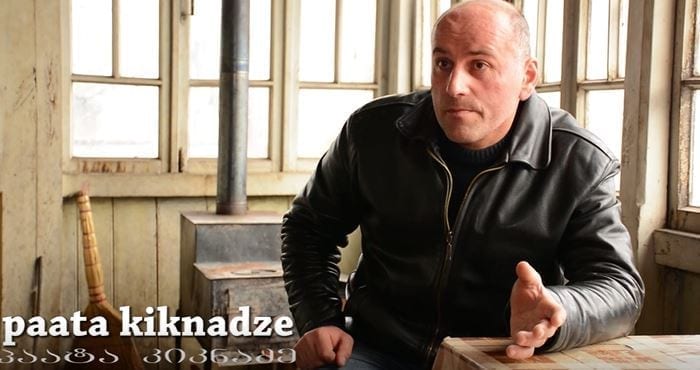
Jun 21, 2017
Nearly 200 railway construction workers in three villages in west Georgia won significant health and safety gains through two agreements with state-owned company China Railway 23rd Bureau Group, according to interviews with several workers in a new Georgian-language video. The company is under contract with the government to modernize Georgia’s Tbilisi-Rikoti railway route, including construction of seven tunnels.
Before the agreements took effect, workers at the construction site in Zvare referred to their section of the project as, “the hell tunnel.” In interviews, they describe how company managers ordered them to enter the tunnel before smoke and dust had cleared from rock-clearing blasts, and how they had not received protective masks and clothing, clean water on the job or paid sick leave.
“There was so much smoke that you cannot see a person in a [three foot] radius, but the attitude of employers is, ’work or go home,’”says one Zvare tunnel worker. “Working there [was] dangerous for life,” confirms Vitali Giorgadze, president of Georgia’s national independent union for railway workers, GRWNTU.
After the agreements took effect, workers reported significant health and safety improvements. “Current conditions are much better than they were before the trade union,” says welder Paata Kiknadze. The agreements committed the company to union-run health and safety monitoring and reporting systems at Zvare, Bezhatubani and Dzirula construction sites, which workers say is key to maintaining the health and safety measures.
With GRWNTU’s assistance, the settlements were reached last fall after workers walked off the job, first in Zvare and later at other construction sites along the route, to protest the firing of two Zvare workers who refused to enter a tunnel filled with scorching dust. Workers walked out again in November, after company representatives allegedly beat five workers in Zvare for, alleges company representatives, gathering firewood on company property.
Assisted by GRWNTU, workers at the Zvare, Bezhatubani and Dzirula construction sites organized into bargaining units, elected leaders and petitioned the Georgian government for assistance to ensure the company ceased violating Georgia labor law. Workers held protest rallies in September in the Georgian capital, Tbilisi, outside the offices of the Georgian Railway department and the Ministry of Labor, Health and Social Affairs of Georgia.
The agreements include additional benefits beyond health and safety improvements. “Before the strike, they did not have the right to [overtime pay and paid] leave,” says Paata Ninua, GRWNTU chief of staff and safety specialist trained under Solidarity Center’s Georgia program, funded by the U.S. Department of Labor. After the strike and the negotiations that followed, Ninua says, these problems were solved.





